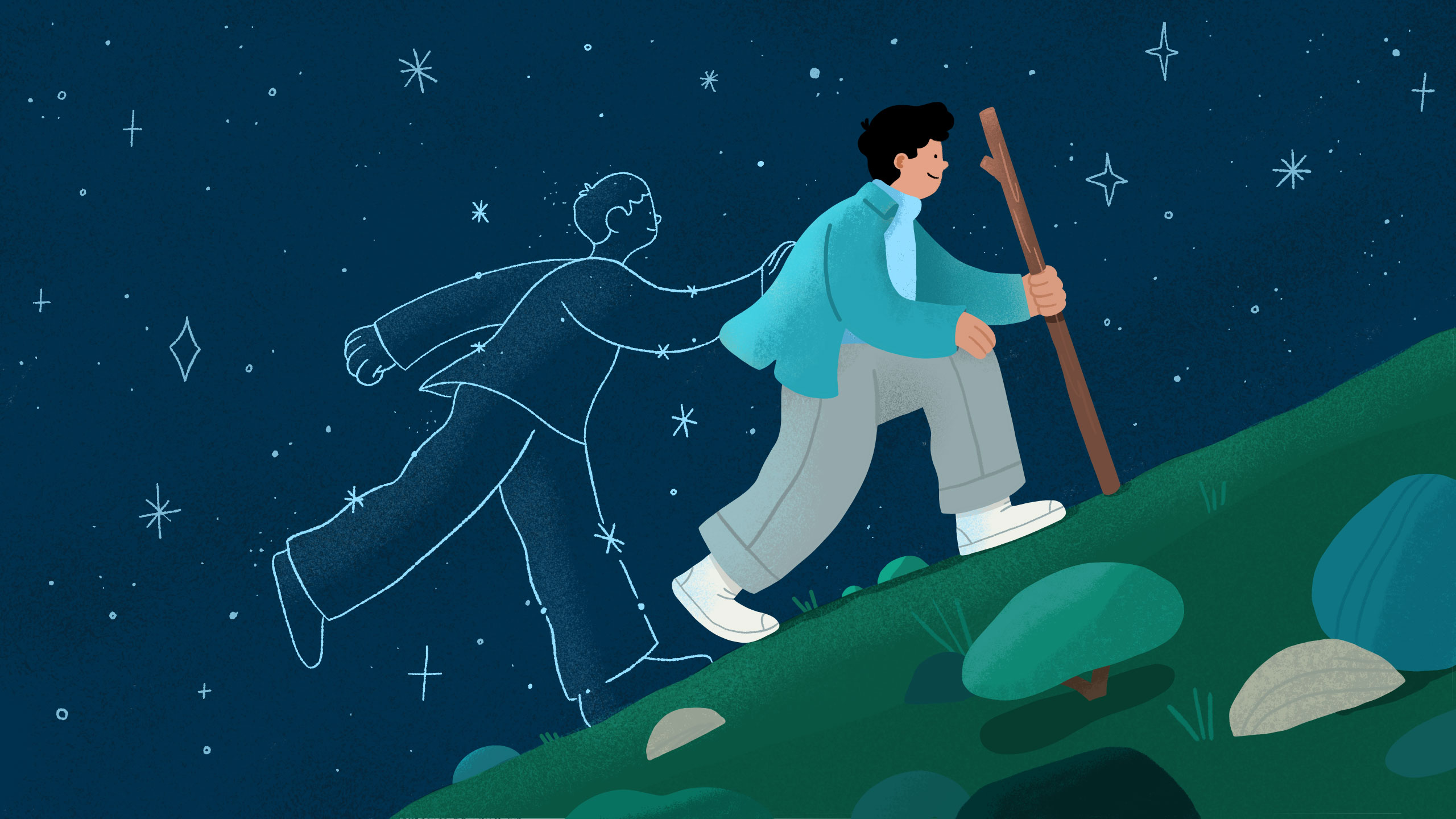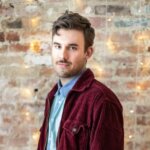“Do you have any siblings?”
People throw the question around all the time, along with all the other typical getting-to-know-you fare like, “Where did you grow up?” or “How do you feel about this season of Drag Race?” It makes sense that others would treat these inquiries casually. They’re completely normal questions that provide context for who we are. For example: If someone tells me that their favourite season of Drag Race is Season 7 or that they find the Puerto Rican queens “so funny even though I can’t understand them,” I know to avoid that person forever.
After my twin brother, Pablo, died at age 18, though, I never knew how to answer the siblings question. The two options, famously, are “yes” or “no.” Choosing either one felt like lying. And the idea of being completely forthcoming made me sick. “Well, I did but now I don’t.”
I’d tried that kind of answer before and I always found myself taking care of the other person’s emotions afterward, as if I had put them through something by telling them that my brother died. Over time, I chose instead to compartmentalize my grief. Shutting down my emotions worked for a day or two, but in the end was bad for my grieving soul. For years, I drew inwards—I just couldn’t find the adequate words to describe my brother, or the pain his loss brought. But recently, I’ve been trying.
Growing up a twin, part of your identity is fixed in the fact that you are one. Twins spend as much time as they do together because it’s convenient in more ways than one: It can be excruciating trying to make new friends as a kid, so to have a best friend already, one that lives with you, is the world’s greatest security blanket. Having someone who knows you better than anyone else in the room is affirming because your sense of self is alive in another person. There’s no fear that no one will understand you because it’s promised that your twin will. No new environment felt insurmountable with Pablo by my side, and I’d like to think he felt the same way.
I remember having a pizza lunch at our elementary school, when we were 11. There was this kid giving Pablo a hard time, maybe he took his pizza crust or Five Alive, I’m not sure. But I, a pre-teen who had thought myself above such brute-like behaviour, found myself soaring from the table and putting my hands on the perpetrator. We pushed and slapped until we were separated and when the vice-principal asked me why I initiated the scuffle, I stared at her dumbfoundedly, like, aren’t teachers supposed to be smart? “I was defending my brother. No, I’m not sorry. Yes, I would do it again.”
I stayed true to my word. I defended Pablo any and every chance I got. Maybe I was defending our collective ego, or maybe I really was defending my twin’s physical well-being. Despite being three minutes older, Pablo was smaller and more susceptible to bullying than me. The point is, I never remember making a conscious decision to jump across that table at lunch, it was pure instinct. I needed to be there for him. All I remember is my body getting hot.
Pablo also cared for me. He was the first person I ever came out to, which I often forget because of how anticlimactic the experience was. He didn’t seem at all surprised and nothing changed between us afterward. Later on, Pablo claimed to have always known I was gay because whenever we played with our Star Wars lego together, which was often, I wanted to play as the fierce woman characters. I never knew that my choice to play as Ahsoka Tano or Asajj Ventress was rooted in some deep-seated desire to be closer to femininity and queerness, but Pablo did, and he never shamed me for it. If anything, he placed an immense value on my decision to “play as a girl,” and always made me feel cooler as a result.
After Pablo died, I began to hear my name said by itself for the first time, and it made me feel so lonely. I never cared much for grammar or punctuation, but god do I miss the ampersand between me and Pablo’s names. The idea of being just myself, outside the context of being Pablo’s twin, was foreign to me. It was easier to become no one at all than to find out who I was without him.
Of course I still had to live my life. I went to school in Montreal, I started doing stand-up, I moved back to Toronto to do more stand-up. Throughout all of it I was, objectively, myself. But every new friend, acquaintance, professor, comedian, whatever that I met wasn’t meeting the me that I knew, the person who was Pablo’s twin. They were meeting a shadow of that person. Pablo’s death was too painful to bring up, and the times I did left me with a vulnerability hangover so powerful that it made hiding my grief feel easier.
Queer people who spent any time growing up in the closet can identify with the feeling of self-preservation through emotional detachment. Negating an entire part of your existence can feel isolating and repressive, but it can also feel, at times, pragmatic. How can anyone hurt my feelings if I don’t have any?
When people talk about my brother in the past tense, I feel the same heat in my body as I did way back in the school lunchroom as a kid. It’s as if Pablo is dying these little syntax-based deaths whenever I hear mention of the person he “was.” I realized in my grief that I had stopped protecting Pablo after he died, that I felt too scared and sad to wear my Twin Badge with honour. Every time I tried to speak about him to others, the words I’d ascribe to Pablo’s character felt insufficient and hollow. Everyone describes their dead loved ones as *insert dead-person superlative here*. I wanted new words. I grew to hate the typical grief jargon that I’d been accosted with. Pablo felt bigger than all of that—he still does. Not to brag, but he’s probably the most important person in all of history to have died too soon, so forgive me for being mad at the inadequate language that fails to reflect the gravity of his loss.
Admittedly, I feel sorry for myself a lot of the time. But operating from a place of self-pity only quells the anger and sadness, it does nothing to release it. So lately I operate from a place of feeling sorry for YOU that you didn’t know my twin, and I have been finding joy harnessing language in order to tell people who my twin was. Pablo was an intelligent, compassionate force of nature who moved peacefully through the world and never demanded any attention. Pablo created art free of ego, he filled countless sketchbooks with original creatures, and only showed them to those he felt close to. You felt special if he let you flip through the pages, nodding as he quietly described the inspiration behind each hero or monster. His taste in music, film and television was cool and eclectic. He introduced me to The Shins, the Cohen brothers and Adventure Time, which were all very formative things for me. Pablo was my steward in the world of fantasy and sci-fi, and I feel deeply connected to him any time the Marvel or Star Wars logo explodes onto an IMAX movie screen.
“Operating from a place of self-pity only quells the anger and sadness, it does nothing to release it.”
I always felt like I was a better person for having Pablo in my life because he was a better person. The trickiest part throughout all of this has been learning how to still be Pablo’s twin without him here.
As painful as it is to mourn the relationship we had, and the person I was when I was with him, it’s been rewarding to navigate the world through Pablo’s eyes. His likeness is embedded in my DNA and that is not even spiritual, that’s science. While I did stop taking science in Grade 10 (I went to an arts school), it’s comforting to have science validate the otherwise abstract sensation of feeling Pablo’s presence as I read a comic book he would have liked. When something funny happens at work or on stage, I imagine telling him about it. I try to keep these invisible conversations alive as best I can, because it’s something I miss most about being a twin.
While I am convinced that grief, unfortunately, ages you physically (crying = dehydration? Only God knows), the literal one silver lining that comes with experiencing a devastating loss is that it ages you mentally as well. I cringe at the word “wiser,” as it feels like it should be reserved for wizards or librarians (or anyone who sports half-moon spectacles for that matter). But here I am, using it to describe my stupid self. But it is true, I am wiser; I am wiser thanks to Pablo.
Grief has just as much power to make one insightful as it does to make one regress. After losing Pablo, every minor upset got woven into the greater tragedy of my life. Stubbing my toe was no longer an isolated incident, it was another twisted plot by the universe to break my spirit.
There are times where I dream of being an enlightened, damaged person who can eloquently divulge my trauma at a dinner party, where everyone is so moved that they applaud. As the hostess wipes a tear from her eye, she says, “Ben, you are so brave and smart.” But outside of my daydreams, I know that’s not the level of closure I realistically need.
I don’t think that losing Pablo is ever something that I want to feel “at peace” with or gain closure from. Pablo was a cool fucking person and it sucks that he’s not here anymore. I still don’t understand why he had to die so early and I don’t think I ever will (life is a mystery, etc.). As annoying as it is that I am always “growing” and “learning,” I find comfort in that I can do so through Pablo’s eyes.


 Why you can trust Xtra
Why you can trust Xtra


